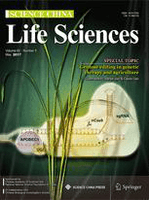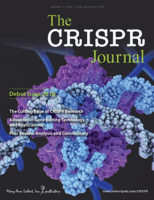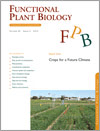
Frontiers in Genome Editing
metrics 2024
Empowering Researchers in Genome Editing
Introduction
Frontiers in Genome Editing, published by FRONTIERS MEDIA SA, stands at the forefront of genomic research, specializing in the rapidly evolving realm of gene editing technologies. With an enthusiastic commitment to open access since 2020, this journal facilitates unrestricted distribution of cutting-edge research, making significant advancements in biotechnology and genetics accessible to a global audience. Located in Lausanne, Switzerland, Frontiers in Genome Editing publishes high-quality, peer-reviewed articles that contribute to the understanding and application of genome editing tools, such as CRISPR and TALEN, in various biological fields. Notably, as of 2023, the journal holds a prestigious Q1 ranking in Biotechnology and a Q2 ranking in Genetics, underscoring its importance and influence within these disciplines. With robust Scopus rankings, including a notable percentile placement, Frontiers in Genome Editing is an invaluable resource for researchers, professionals, and students dedicated to the promising future of genomic innovation.
Metrics 2024
 -
- 4.90
4.90 4.60
4.60 -
-Metrics History
Rank 2024
IF (Web Of Science)
JCI (Web Of Science)
Quartile History
Similar Journals

GENETICS AND MOLECULAR BIOLOGY
Bridging theory and practice in genetic science.GENETICS AND MOLECULAR BIOLOGY, published by the SOC BRASIL GENETICA, is a prominent journal dedicated to the advancement of knowledge in the fields of genetics and molecular biology. Since its inception in 1998, this Open Access journal has served as a vital platform for researchers, professionals, and students to disseminate their findings and engage with the latest innovations and discoveries. With an impact factor that reflects its growing influence, GENETICS AND MOLECULAR BIOLOGY ranks in the Q3 category for both genetics and molecular biology as of 2023, indicating its position within the academic community. The journal is indexed in Scopus, highlighting its commitment to maintaining rigorous peer-review standards while providing wide-reaching access to quality research. Operating out of Ribeirão Preto, Brazil, it fosters a collaborative environment for academic discourse and research development not only in Brazil but also globally. The journal encourages submissions that explore a wide range of topics in genetics and molecular biology, making it an essential resource for anyone involved in these dynamic fields.

APPLIED BIOCHEMISTRY AND BIOTECHNOLOGY
Connecting Science and Technology for a Better TomorrowApplied Biochemistry and Biotechnology is a leading journal published by Springer, dedicated to advancing research in the interdisciplinary fields of biochemistry, biotechnology, and applied microbiology. Established in 1981, this peer-reviewed journal covers a wide range of topics that encompass innovative techniques, methodologies, and applications of biochemistry and biotechnology in medicine, environmental engineering, and molecular biology. With a Q2 ranking in several categories and an increasing impact factor, the journal demonstrates significant influence and credibility within the scientific community. While traditionally subscription-based, the journal offers avenues for open access through selective agreements, making high-quality research accessible to a broader audience. Researchers, professionals, and students alike will find Applied Biochemistry and Biotechnology to be an invaluable resource for the latest developments and applications in biochemistry and its related fields, aiding in the quest for sustainable solutions and novel biotechnological advancements.

Science China-Life Sciences
Catalyzing collaboration in agricultural and biological research.Science China-Life Sciences, published by SCIENCE PRESS, is a premier academic journal that stands at the forefront of innovative research and discoveries in the fields of life sciences, spanning crucial areas such as agricultural and biological sciences, biochemistry, genetics, molecular biology, and environmental science. With an impressive Q1 ranking in its respective categories—ranked #5 in Agricultural and Biological Sciences, #7 in Environmental Science, and #17 in Biochemistry, Genetics and Molecular Biology—this journal is recognized for its rigorous peer-review process and significant impact within the scientific community, as reflected in its high percentiles (97th and 92nd). Maintained as an Open Access publication, it ensures broad dissemination and accessibility of research findings, fostering collaboration and knowledge sharing among researchers, professionals, and students alike. Given its position in the research landscape and its commitment to high-quality scholarship, Science China-Life Sciences plays a vital role in advancing life sciences research, supporting scientists in addressing global challenges through innovative biological solutions.

CRISPR Journal
Advancing the Future of Gene EditingThe CRISPR Journal, published by MARY ANN LIEBERT, INC, is a pioneering platform dedicated to advancing the field of genetics and biotechnology through innovative research focused on CRISPR technology and its diverse applications. With an impressive Q1 ranking in both Biotechnology and Genetics for 2023, this journal is positioned among the leading publications in its field, showcasing groundbreaking studies from 2019 to 2024. While currently utilizing a subscription model, the journal's commitment to open science is reflected in its efforts to make high-quality research accessible to researchers, professionals, and students. The CRISPR Journal facilitates the dissemination of knowledge related to genomic editing technologies, fostering collaboration and advancing the understanding of gene manipulation, therapeutic techniques, and agricultural innovations. As a valuable resource for cutting-edge developments in the biochemistry and genetics landscape, this journal is essential for those seeking to stay at the forefront of CRISPR research and applications.

GENOME BIOLOGY
Exploring intricate mechanisms of life through open access research.GENOME BIOLOGY is a premier, peer-reviewed journal published by BMC, focusing on the rapidly evolving fields of genomics, molecular biology, and bioinformatics. Accessible as an Open Access journal since 2000, it aims to disseminate high-quality, cutting-edge research that contributes to our understanding of genome biology's intricate mechanisms. The journal boasts an impressive impact, ranking 8th in Agricultural and Biological Sciences and 9th in Biochemistry, Genetics and Molecular Biology, highlighting its significance among scholars, professionals, and students alike. With a commitment to facilitating the exchange of invaluable scientific knowledge, GENOME BIOLOGY provides an important platform for discussions on evolutionary biology, genetic systems, and cell biology, contributing to the advancement of these dynamic disciplines.

FUNCTIONAL PLANT BIOLOGY
Shaping Tomorrow's Agriculture Through ResearchFUNCTIONAL PLANT BIOLOGY is a prestigious academic journal published by CSIRO PUBLISHING, specializing in the dynamic fields of Agronomy and Crop Science as well as Plant Science. With an ISSN of 1445-4408 and an E-ISSN of 1445-4416, this journal provides a platform for innovative research that addresses key challenges in plant functional biology, ranging from genetics and physiology to ecological interactions. As evidenced by its impact factor and competitive rankings, including Q1 in Agronomy and Crop Science and Q2 in Plant Science, FUNCTIONAL PLANT BIOLOGY holds a significant place in the scientific community, ranking in the top tiers of Scopus for both categories. The journal supports open access options, ensuring that critical research is widely disseminated and accessible to researchers, professionals, and students around the globe. With a publication history spanning from 2002 to 2024, the journal continues to foster the advancement of plant science, making significant contributions to sustainable agricultural practices and ecological research in Australia and beyond.

Molecular Cell
Pioneering Discoveries in Cell and Molecular Biology.Molecular Cell, published by Cell Press, is a leading journal in the fields of cell biology and molecular biology. Established in 1997, this prestigious journal boasts a significant impact within the scientific community, evidenced by its impressive 2023 Scopus rankings, placing it in the top 2% of its field (Rank #10/410 in Molecular Biology, Rank #12/285 in Cell Biology). With a focus on cutting-edge research that bridges the gap between molecular genetics and cellular function, Molecular Cell serves as an essential platform for the dissemination of vital findings and innovative methodologies. Although it follows a traditional publishing model without Open Access options, its rigorous peer-review process and high standards ensure that articles published within these pages are of the utmost quality, making it an invaluable resource for researchers, professionals, and students alike seeking to stay at the forefront of scientific discovery. The journal's address is 50 Hampshire St, Floor 5, Cambridge, MA 02139, United States, reinforcing its commitment to fostering scientific excellence and collaboration.

EUROPEAN JOURNAL OF HEALTH LAW
Advancing the discourse in health law and policy.The European Journal of Health Law, published by Brill, stands as a pivotal resource for scholars and practitioners at the intersection of health policy and law since its inception in 1994. This esteemed journal, with an ISSN of 0929-0273 and an E-ISSN of 1571-8093, delves into pressing issues affecting health law across Europe and beyond, providing a platform for rigorous scholarly discourse. It is categorized in the Q4 quartile for Health Policy and Q3 for Law, highlighting its crucial role in advancing knowledge in these fields. While the journal is not an open-access publication, its content remains vital for researchers, students, and professionals seeking to navigate the complexities of health law amidst evolving legal frameworks. With an increasing focus on interdisciplinary studies, the journal aims to foster a deeper understanding of legal principles and their application to health care governance, policy-making, and ethical considerations, making it an indispensable reference for those committed to enhancing health law practice and scholarship.

Plant Reproduction
Innovating Knowledge in Plant Reproductive ProcessesPlant Reproduction is an esteemed academic journal published by Springer, dedicated to advancing the understanding of reproductive processes in plants. With its ISSN 2194-7953 and E-ISSN 2194-7961, this journal serves as a vital resource for researchers and professionals in the fields of cell biology and plant science. Since its inception in 2013, it has been recognized in the Q1 Quartile for plant science, underscoring its significance and impact within the academic community, while maintaining a ranking of #79/516 in the Scopus database for agricultural and biological sciences. The journal embraces an Open Access model, enhancing accessibility for a broader audience of scholars and practitioners. As we continue to converge our research efforts towards 2024 and beyond, Plant Reproduction remains committed to exploring innovative findings and fostering collaboration in plant reproductive biology, thereby contributing significantly to the global understanding of plant systems and their ecological impacts.

aBIOTECH
Transforming ideas into groundbreaking solutions in life sciences.aBIOTECH, published by SPRINGERNATURE, is a premier academic journal dedicated to advancing the fields of biotechnology, agronomy, and molecular biology. With an impressive ISSN of 2096-6326 and E-ISSN 2662-1738, this journal has established itself as a vital resource for researchers and professionals aiming to publish high-quality, impactful studies. Based in Singapore, aBIOTECH has achieved remarkable recognition, boasting a Q1 ranking in multiple categories including Agronomy and Crop Science, Biochemistry, and Genetics in the 2023 Scopus rankings. Its solid position in the 90th percentile for Biochemistry and Genetics reinforces its significance within the global scientific community. The journal covers a broad spectrum of topics relevant to both basic and applied research, facilitating a shared dialogue amongst scientists and encouraging collaborative progress in innovative biotechnological applications. The open-access nature of the journal ensures that cutting-edge research is freely available, fostering a global exchange of ideas that is critical to the advancement of science today.